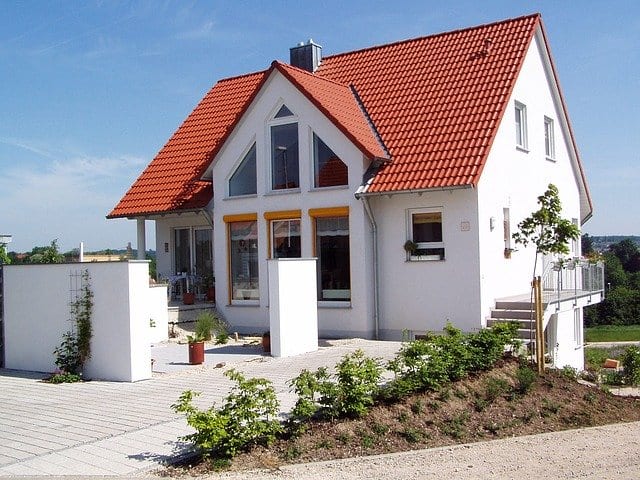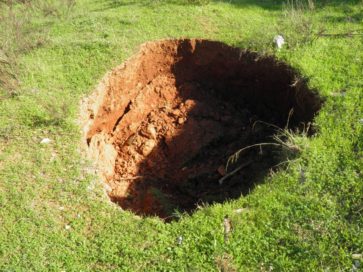Four Point Vs. Full Home Inspection
If you are planning to get homeowners insurance coverage (and that’s most of you), then your insurance firm may require inspections be done on your home before they will issue a new policy. Generally speaking, there are three inspection types they may request: Four (4) point inspections, Wind mitigation inspections, and occasionally a full, General home inspection.
All of these different inspections can sometimes get confusing for those not well versed in the subject (as if the home buying process isn’t already chaotic enough).
To keep it simple, the full, General home inspection is typically for you as the buyer. The goal of the full home inspection, as RentSmartUSA Management in Orlando says, is to uncover any notable issues or damage before the property is sold. Sometimes current homeowners will also get them to learn more about the condition of their existing home, such as before performing renovations, or prior to listing it for sale. It is rare, although not unheard of, for the insurance company to sometimes request this.
The other two inspections, the 4-Point and Wind Mitigation, are strictly for insurance purposes. In fact, these are collectively called “insurance inspections” and their format was created by the insurance industry. These reports can be cryptic to read for the layperson, and they do NOT cover everything that a full General home inspection covers. Therefore, they alone should not be relied upon when doing your due diligence for purchasing a new home.
Sometimes people get the 4-Point and full General home inspection confused, since there is some overlap in what is inspected. However, they are not the same. The 4-point is not nearly as comprehensive. If your real estate agent suggests you to only get a 4-point (i.e. skipping the general home inspection) when buying a home, we might question their motives. They may not have protecting your best interest in mind. People have tried doing this and later regretted it. They just don’t get the full picture of what their buying.
Let’s explore more of the main differences between these two inspections (4-Point vs Full Home Inspection) so you know what to expect.
A Four-Point Inspection
Do you own an older home in the state of Florida or other coastal states? If you do, then you might need a four-point (4-Point) inspection to obtain homeowners insurance. A four-point inspection is usually required if you are either purchasing an older home or if you are renewing your existing homeowner’s insurance policy. Defining what constitutes an “older home” is subjective, but the generally rule is 30-years or more. However, we have seen a few insurance carriers require them on a home only 5-years old! Ultimately, each insurance company sets their own standards for this.
The reason why this type of inspection is requested for older homes is that they can have common issues that result in expensive claims revolving around four key areas: The roof, plumbing, HVAC, and electrical. It’s important to stress that this inspection is limited to these four systems only. Notably absent from this inspection is the structure itself.
To make remembering this inspection easier for clients, we sometimes use the acronym P.E.R.M. (you know, that thing people did to their hair in the 80’s): Plumbing, Electrical, Roof, and Mechanical (AC). We can smell the Aqua-Net hairspray right now!
During a four-point inspection, the following are the four things that an inspector will look at:
- Plumbing: When examining your home’s plumbing, the inspector will pay particular attention to the types of pipes in your home to determine their likelihood of bursting. If the inspector finds polybutylene plumbing, chances of coverage may greatly diminish. Some insurance companies, however, may still insure you but exclude water damage. This means that you’ll become entirely responsible if water damage occurs in your home due to pipes bursting.
- Electrical Wiring and Panels: What kind of wiring does your home have? If your home has knob-and-tube, or single-strand aluminum wires, chances of getting insurance are minimal without repairs. 90% of all residential fires are caused by faulty wires, and this is something that insurance agencies don’t take lightly. Copper is the standard.
- Roof: The inspector will examine the condition, material, and age of the roof. Generally speaking, an insurance company won’t insure metal roofs aged more than forty years or shingle roofs exceeding twenty years.
- Mechanical/HVAC: Does your home have an HVAC system? If so, what condition is it in? Does it leak condensation? While every insurance company has what it considers “acceptable”, it isn’t uncommon for coverage to be denied due to issues here, or a lack of AC.
How long does a four-point inspection take?
A four-point inspection takes about 45-60 minutes and is only visual.
How much does a four-point inspection cost?
Although the costs vary from one location to another, expect to pay anywhere between $175-$300 for this stand-alone inspection. They can be more affordable when performed during the same visit as a full home inspection.
Who can perform a four-point inspection?
In Florida, a four-point inspection is usually performed by licensed home inspectors like us at Whitt Inspections, but can be done by a registered and licensed architect, a building code inspector, or a general, residential, or building contractor.
Who pays for a four-point inspection?
A four-point inspection is normally paid for by the home buyer during a real estate transaction. If you already are a homeowner simply looking to switch insurance carriers, then you would be responsible.

A Full-Home Inspection
A full (i.e. General) home inspection is a more comprehensive, non-invasive inspection of a home’s overall condition. General home inspections include a visual review of the home’s structure, electrical, plumbing, heating/cooling, and roofing systems. It also includes built-in appliances, safety issues, site conditions, and other systems such as fireplaces, interiors, stairwells, railings, windows, doors, etc.
- The Exterior: An inspector will walk the property to examine its structural integrity. They will look at things like the home’s foundation, site drainage, materials and construction methods used, and report observed defects.
- Safety Checklist: Safety is a critical component of any home inspection checklist. An inspector will look at safety systems like the smoke detector alarms, ground fault interrupters, stairs, and safety glass.
- The Roof: An inspector can tell whether a roof has been done by an amateur or a professional. They will check to see that openings like skylights or chimneys have good flashing and are free from debris and defects.
- Major Systems: From HVAC to plumbing to electrical, an inspector will look at all the major systems in a home.
Additionally, home inspectors will also look at the operation of doors and windows, the operation of toilets and sinks, signs of moisture intrusion or plumbing leaks, and the interior of the home. Built-in appliances are also inspected, as well as the structure itself.
A point of distinction: A full home inspection is much, much more thorough than a four point inspection. We see buyers and sometimes even agents (gasp!) make the mistake of only getting a four-point to save money, but this is a folly that will often cost them much more than they think they are saving. For instance, we reiterate that the structure is NOT inspected at all during a 4-Point inspection!
Don’t be penny-wise but pound-foolish when it comes to the biggest purchase most of you will probably ever make. Home inspections, in the scheme of things, aren’t very expensive and can help keep you from buying an unsafe home or leaving money on the table during negotiations.
We promise that buying a money pit will cost you so much more, so do your research and get the very best inspector you can afford. This is in your best interest. Remember, inspectors are people — not commodities — and are simply not all the same. Maybe we’re biased but trust us here. We’ve seen some awful so-called “inspections” out there.
How long does a full home inspection take?
For a typical home, expect the inspection process to take a couple of hours. The report will usually be delivered in about 1 or 2 days.
How much does a full home inspection process cost?
The average cost of a home inspection process is $375. Homes under 1,000 sq. ft. cost as little as $300 while those with more than 3,000 sq. ft. will run at least $450. The age of the home can also factor into cost.
Who can perform a full home inspection?
Home inspections are done by licensed home inspectors. Different states have specific requirements. In Florida, all home inspectors are required to be licensed by the state DBPR.
Who pays for a full home inspection?
Just like in a four-point inspection, the buyer is responsible for paying for the full home inspection.
In Summary
There you have it – the major differences between a four-point inspection and a full home inspection. Now you are equipped with the information to distinguish between them, and how to select the proper one.
When needing either inspection, we can perform them all. The experienced professionals at Whitt Inspections, LLC, are here to help you!





 pxfuel.com
pxfuel.com